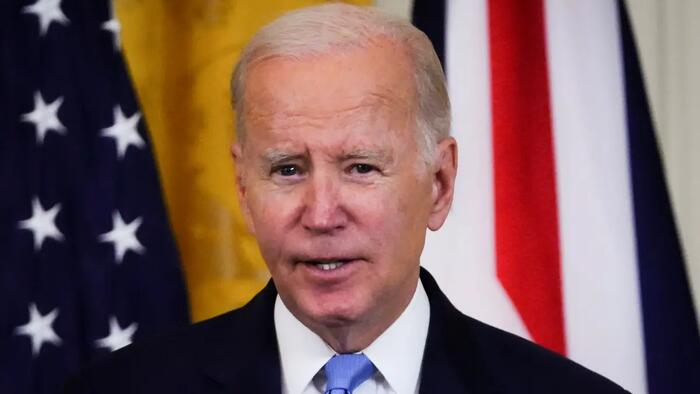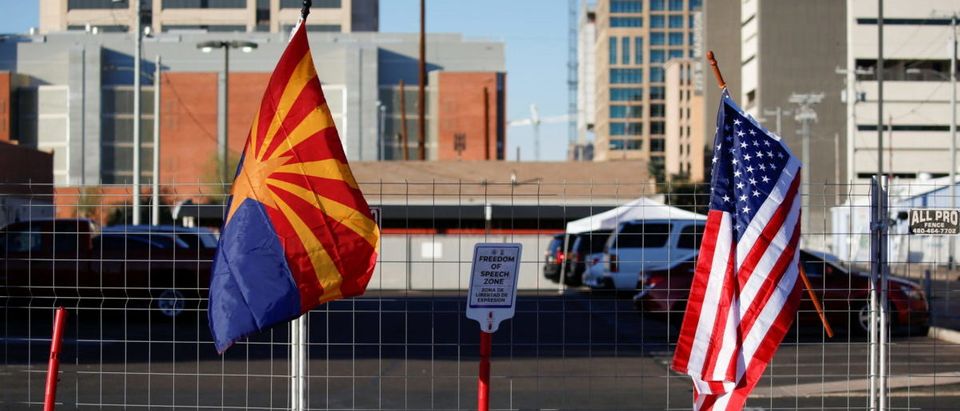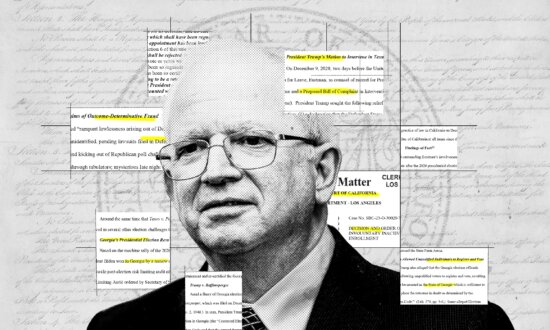Authored by Zachary Stieber via The Epoch Times (emphasis ours),
The Supreme Court on Dec. 11 threw out three cases involving federal COVID-19 vaccine mandates, handing a win to President Joe Biden and his administration.
In unsigned rulings, the justices said that rulings against mandates imposed by President Biden and the U.S. military have been vacated.
They also remanded the cases back to lower courts with instructions for the courts to vacate preliminary injunctions that had been in place against the administration as moot.
The decisions mean that the rulings won’t act as precedent in future vaccine mandate cases.
“We believe the United States Constitution clearly does not permit the federal government to force federal workers—or any law abiding citizen—to inject their bodies with something against their will. In fact, the freedom to control your own body and your own medical information is so basic that, without those liberties, it is impossible to truly be ‘free’ at all,” Marcus Thornton, president of Feds for Freedom, said in a statement. “We are disappointed that the Supreme Court dodged these important Constitutional arguments and instead chose to vacate our case on technicalities.“
One case was brought by Feds for Freedom and involved President Biden’s mandate for federal employees. The mandate was imposed in 2021, with the president claiming that vaccination was the “best way to slow the spread of COVID-19” and that requiring vaccination would “promote the health and safety of the federal workforce and the efficiency of the civil service.”
An appeals court this year reinforced a preliminary injunction entered by a lower court, ruling that the court system—not a board composed of people appointed by the president—has jurisdiction over the case.
U.S. District Judge Jeffrey Brown had ruled previously that the president lacked the authority to impose the vaccine mandate.
Another case was brought by a federal worker who recovered from COVID-19 and thus enjoyed some protection against the illness but was still being forced to receive a vaccination under President Biden’s mandate because the government refused to formally recognize the post-infection protection. Jason Payne, the worker, said the mandate exceeded President Biden’s authority.
In the third case, federal judges ruled that the U.S. Air Force’s handling of its mandate was illegal, and prevented the branch from taking disciplinary action against members who had requested religious exemptions.
Government lawyers urged the Supreme Court to rule the decisions in these cases as moot, given that the vaccine mandates were ended.
“Consistent with this court’s ordinary practice under such circumstances, the court should grant the petition for a writ of certiorari, vacate the judgment below, and remand with instructions to direct the district court to dismiss its order granting a preliminary injunction as moot,” the lawyers wrote in one petition to the court.
Mr. Payne’s lawyers also asked for the decisions to be ruled as moot, after two courts ruled against him and following the rescinding of the mandate that affected him.
Lawyers for the other federal workers and for the military members opposed the request.
The government was asking the Supreme Court to endorse a “heads we win, tails you get vacated” version of a previous court decision, United States v. Munsingwear, lawyers for the federal workers wrote in one brief. If granted, the government would be able to “litigate to the hilt in both district and circuit court and—only if they lose—then decline to seek substantive review from this court and instead moot the case and ask this court to erase the circuit court loss from the books,” according to the brief.
Lawyers for the military members noted that Congress forced the military to rescind its mandate, but that the legislation didn’t prevent the Department of Defense from issuing another mandate.
Government lawyers said the mandates were rescinded because the pandemic situation had changed, not because they were challenged. They also argued that the mandates “cannot be reasonably expected to recur.”
Lawyers for the military members said that the claim was “in serious tension” with the demand to vacate the rulings under the Munsingwear precedent, given that the purpose of such a move “is to clear the path for future re-litigation without res judicata concerns.”
None of the Supreme Court justices except for Justice Ketanji Brown Jackson, who was appointed by President Biden, explained their decisions on the cases.
“Although I would require that the party seeking vacatur establish equitable entitlement to that remedy, I accede to vacatur here based on the court’s established practice when the mootness occurs through the unilateral action of the party that prevailed in the lower court,” she said in regard to Mr. Payne’s case.
In the two other cases, Justice Jackson said that the government hadn’t “established equitable entitlement” to vacatur, but that she concurred with the overall judgment from her colleagues.
She cited a Dec. 5 decision in which the court ruled against a civil rights activist who sought a ruling that would force hotels to make information for disabled people publicly available.
Justice Jackson sided with the majority in that ruling but contested the majority’s decision to vacate a lower court ruling, arguing that vacatur—or the setting aside of the judgment—shouldn’t be granted automatically.
“Automatic vacatur plainly flouts the requirement of an individualized, circumstance-driven fairness evaluation, which, as I have explained, is the hallmark of an equitable remedy,” she wrote.
It’s also “flatly inconsistent with our common-law tradition of case-by-case adjudication, which ‘assumes that judicial decisions are valuable and should not be cast aside lightly,'” Justice Jackson said, quoting from yet another ruling.
“As a general matter, I believe that a party who claims equitable entitlement to vacatur must explain what harm—other than having to accept the law as the lower court stated it—flows from the inability to appeal the lower court decision.”
Loading…












